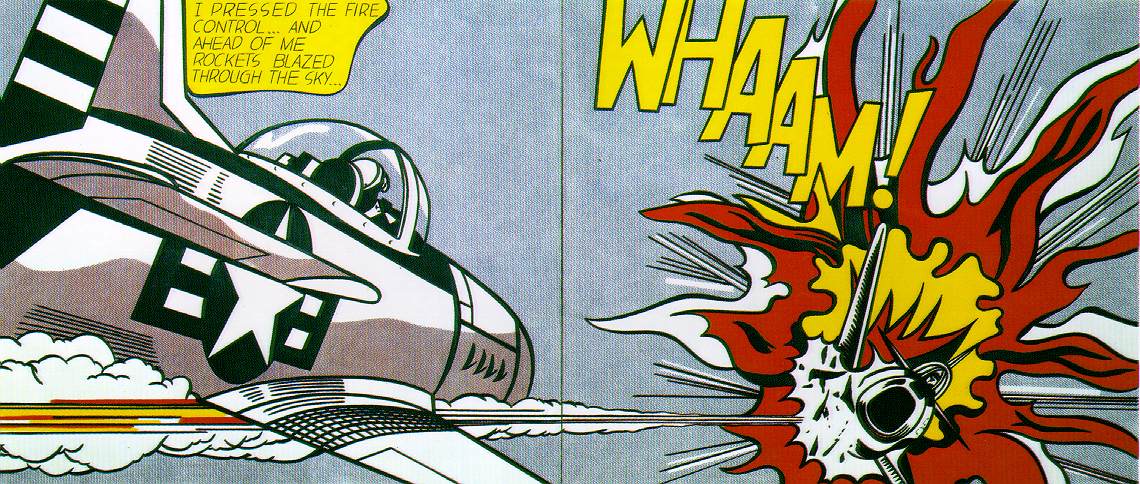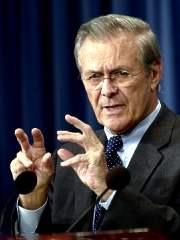Eftirfarandi er minnisblaš Rumsfeld til Bush, dagsett 6. nóvember. New York Times birti minnisblašiš ķ heild sinni ķ morgun, og fylgir žvķ eftir meš umfjöllun. Minnisblašiš sżnir aš Rumsfeld var bśinn aš gera sér grein fyrir žvķ aš strķšiš vęri svo gott sem tapaš, og aš žaš vęri komiš aš žvķ aš forsetinn horfšist ķ augu viš hversu ömurlegt įstandiš vęri. Žaš er sérstaklega athyglisvert aš Rumsfeld telur žaš meš verstu kostum ķ stöšunni aš "stay the course" (Reyndar segir Rumsfeld "Continue on the current path", og oršhenglar repśblķkanaflokksins eru įbyggilega tilbśnir til žess aš halda žvķ fram aš žar meš hafi Rumsfeld ekki veriš aš gera lķtiš śr "stay the course" stefnu forsetans)
Ég hef aldrei veriš sérstakur ašdįandi Rumsfeld, en mér sżnist hugmyndir hans flestar benda ķ rétta įtt. (Jś, aš vķsu hef ég alltaf dįšst aš žvķ hvernig Rumsfeld setur saman furšulegar opinberar yfirlżsingar um hluti eins og "the known unknowns, and the unknown unknwonws", en yfirlżsingum Rumsfeld hefur veirš lķkt viš existensķalķskan skįldskap. Eftirfarandi eitt af betri ljóšum Rumsfeld, performeraš 12 febrśar 2002, į fréttamannafundi/ljóšalestri varnarmįlarįšuneytisins:
- Reports that say, that something hasn't happened
- are always interesting to me,
- because as we know, there are known knowns;
- there are things we know we know.
- We also know there are known unknowns;
- that is to say, we know there are some things we do not know.
- But,
- there are also unknown unknowns — the ones we don't know...
- we don't know.
Minnismišinn er ekki alveg stórkostlegur skįldskapur, en sem sęmilega raunsannt og skynsamt mat į stöšu mįla er hann hreint ekki svo slęmur! Rumsfeld vill ekki fjölga hermönnum (eins og McCain og forsetinn hafa viljaš), heldur vill hann byrja aš draga nišur herstyrk Bandarķkjanna. Žaš hefur veriš athyglisvert aš fylgjast meš višbrögšum repśblķkana viš minnisblaši Rumsfeld. Žaš sama mį segja um Lieberman - sem er einhverskonar repśblķkani, en hann sagši aš minnisblašiš hefši veriš "in many ways surprising", og er mjög undrandi į aš Rumsfeld vilji ekki fjölga hermönnum ķ Ķrak.
I must say, that the one thing he doesn’t raise as a possibility is to increase the number of our troops there even though there’s very broad criticism of Rumsfeld for having had too few American troops in Iraq after Saddam Hussein was overthrown. That may well be a critical part of the problems that we’ve been having lately.
Žaš veršur forvitnilegt aš sjį hvernig stušningsmenn strķšsins snśa sig śt śr žvķ aš Rumsfeld sé fylgjandi einhverskonar "cut and run-and/or-redeploy" stefnu.
Nov. 6, 2006
SUBJECT: Iraq — Illustrative New Courses of Action
The situation in Iraq has been evolving, and U.S. forces have adjusted, over time, from major combat operations to counterterrorism, to counterinsurgency, to dealing with death squads and sectarian violence. In my view it is time for a major adjustment. Clearly, what U.S. forces are currently doing in Iraq is not working well enough or fast enough. Following is a range of options:
ILLUSTRATIVE OPTIONS
Above the Line: (Many of these options could and, in a number of cases, should be done in combination with others)
¶Publicly announce a set of benchmarks agreed to by the Iraqi Government and the U.S. — political, economic and security goals — to chart a path ahead for the Iraqi government and Iraqi people (to get them moving) and for the U.S. public (to reassure them that progress can and is being made).
¶Significantly increase U.S. trainers and embeds, and transfer more U.S. equipment to Iraqi Security forces (ISF), to further accelerate their capabilities by refocusing the assignment of some significant portion of the U.S. troops currently in Iraq.
¶Initiate a reverse embeds program, like the Korean Katusas, by putting one or more Iraqi soldiers with every U.S. and possibly Coalition squad, to improve our units’ language capabilities and cultural awareness and to give the Iraqis experience and training with professional U.S. troops.
¶Aggressively beef up the Iraqi MOD and MOI, and other Iraqi ministries critical to the success of the ISF — the Iraqi Ministries of Finance, Planning, Health, Criminal Justice, Prisons, etc. — by reaching out to U.S. military retirees and Reserve/National Guard volunteers (i.e., give up on trying to get other USG Departments to do it.)
¶Conduct an accelerated draw-down of U.S. bases. We have already reduced from 110 to 55 bases. Plan to get down to 10 to 15 bases by April 2007, and to 5 bases by July 2007.
¶Retain high-end SOF capability and necessary support structure to target Al Qaeda, death squads, and Iranians in Iraq, while drawing down all other Coalition forces, except those necessary to provide certain key enablers for the ISF.
¶Initiate an approach where U.S. forces provide security only for those provinces or cities that openly request U.S. help and that actively cooperate, with the stipulation being that unless they cooperate fully, U.S. forces would leave their province.
¶Stop rewarding bad behavior, as was done in Fallujah when they pushed in reconstruction funds, and start rewarding good behavior. Put our reconstruction efforts in those parts of Iraq that are behaving, and invest and create havens of opportunity to reward them for their good behavior. As the old saying goes, “If you want more of something, reward it; if you want less of something, penalize it.” No more reconstruction assistance in areas where there is violence.
¶Position substantial U.S. forces near the Iranian and Syrian borders to reduce infiltration and, importantly, reduce Iranian influence on the Iraqi Government.
¶Withdraw U.S. forces from vulnerable positions — cities, patrolling, etc. — and move U.S. forces to a Quick Reaction Force (QRF) status, operating from within Iraq and Kuwait, to be available when Iraqi security forces need assistance.
¶Begin modest withdrawals of U.S. and Coalition forces (start “taking our hand off the bicycle seat”), so Iraqis know they have to pull up their socks, step up and take responsibility for their country.
¶Provide money to key political and religious leaders (as Saddam Hussein did), to get them to help us get through this difficult period.
¶Initiate a massive program for unemployed youth. It would have to be run by U.S. forces, since no other organization could do it.
¶Announce that whatever new approach the U.S. decides on, the U.S. is doing so on a trial basis. This will give us the ability to readjust and move to another course, if necessary, and therefore not “lose.”
¶Recast the U.S. military mission and the U.S. goals (how we talk about them) — go minimalist.
Below the Line (less attractive options):
¶Continue on the current path.
¶Move a large fraction of all U.S. Forces into Baghdad to attempt to control it.
¶Increase Brigade Combat Teams and U.S. forces in Iraq substantially.
¶Set a firm withdrawal date to leave. Declare that with Saddam gone and Iraq a sovereign nation, the Iraqi people can govern themselves. Tell Iran and Syria to stay out.
¶Assist in accelerating an aggressive federalism plan, moving towards three separate states — Sunni, Shia, and Kurd.
¶Try a Dayton-like process

|
Rumsfeld sendi forsetanum minnisblaš um breytta stefnu gagnvart Ķrak |
| Tilkynna um óvišeigandi tengingu viš frétt | |
Meginflokkur: Stjórnmįl og samfélag | Aukaflokkar: Bush, Senķlir pólķtķkusar | Breytt s.d. kl. 20:59 | Facebook



Bęta viš athugasemd [Innskrįning]
Ekki er lengur hęgt aš skrifa athugasemdir viš fęrsluna, žar sem tķmamörk į athugasemdir eru lišin.